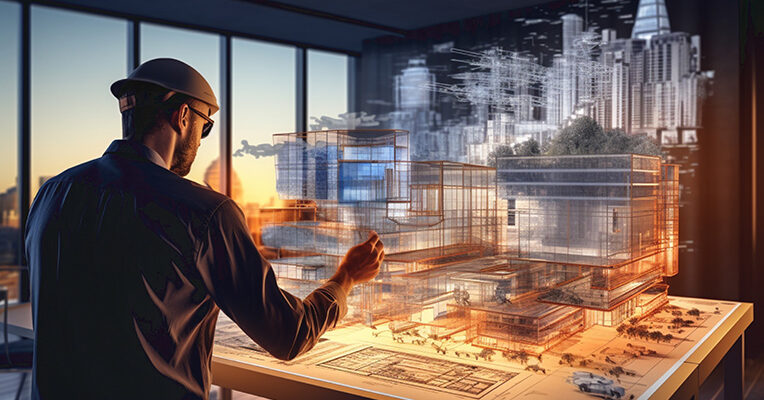We denounce with righteous indignation and dislike men who we are to beguiled demoralized by the charms of pleasures that moment, so we blinded desires, that they indignations.

4208 Evergreen Lane, Suite 231,
Annandale, VA 22003
 karimgcllc@gmail.com
karimgcllc@gmail.com +1 571 762-8900
+1 571 762-8900 
Mon – Fri: 9 AM – 7 PM
Sat – Sun: Closed

Artificial Intelligence (AI) is transforming industries across the globe, and construction in the United States is no exception. Known for being a traditionally labor-intensive sector, construction is now leveraging AI technologies to enhance efficiency, safety, and productivity. From project planning to on-site execution, AI is reshaping the way construction projects are managed and executed.
1. Enhanced Project Planning and Design
AI-powered tools are revolutionizing the pre-construction phase by enabling accurate project planning and design. Generative design software, powered by AI, can analyze vast amounts of data to create optimized architectural designs that consider factors such as materials, structural integrity, and environmental impact. AI algorithms also help forecast costs and timelines with greater accuracy, reducing the likelihood of budget overruns and project delays.
2. Improved Safety on Construction Sites
Safety is a top priority in construction, and AI is playing a crucial role in mitigating risks. AI-driven systems use real-time data from on-site cameras and sensors to identify potential hazards, such as unsafe worker behavior or machinery malfunctions. Predictive analytics further enhance safety by forecasting potential accidents based on historical data, allowing contractors to address risks before they become incidents.
3. Optimized Resource Management
AI is helping construction companies optimize resource allocation, ensuring efficient use of materials, labor, and equipment. AI systems can monitor inventory levels, predict material shortages, and suggest cost-effective procurement strategies. In addition, AI-powered scheduling tools dynamically adjust work schedules based on real-time progress and weather conditions, improving overall project efficiency.
4. Autonomous Equipment and Robotics
AI-powered robotics and autonomous equipment are becoming more prevalent on construction sites. Drones equipped with AI are used for site surveys, progress monitoring, and inspections, providing precise data in a fraction of the time required by manual methods. Autonomous vehicles and machinery, such as excavators and bulldozers, enhance productivity and reduce labor costs while maintaining high accuracy levels.
5. Sustainability and Energy Efficiency
AI is also driving sustainability efforts in the construction industry. By analyzing energy consumption patterns and environmental impact, AI tools can suggest energy-efficient building designs and sustainable material choices. These insights help construction companies align with green building standards and reduce their carbon footprint.
Conclusion
The integration of AI into the U.S. construction industry is revolutionizing how projects are planned, executed, and managed. By enhancing safety, optimizing resources, and driving sustainability, AI is not only improving operational efficiency but also shaping the future of construction. As adoption continues to grow, the industry is poised for unprecedented innovation and transformation.